|
0 Comments
With the coronavirus pandemic occurring across the globe and the urgent need to practice social distancing, occupational therapy education programs are quickly shifting to online teaching and learning, with students and faculty members being encouraged to function as remotely as possible - even to the point of self-quarantine in many instances. These circumstances are unprecedented in the U.S. education system and certainly in OT education and in the healthcare field, and we are all being called upon to do some things we haven't needed to do previously and other things to much more of an extent. I want to address several points that have been swirling around in my head over the past several days during which it became apparent that this would be the direction in which we would have to go. While I am writing this with the OT students I teach in mind specifically, much if not all of this is applicable to all OT students in the nation and perhaps even to those in a larger group. One of the things we are good at in the field of occupational therapy is adapting. Now is the time when we need to band together as a profession not only to be resourceful but also to share resources with others. That's a big part of the leader/change-agent component students are learning about in OT school. Let's consider what that means in the context of what's going on right now. For many of us, it means having to do our work in a different environment, one that is likely to need adaptation to serve as an effective support to occupational performance - and, in this case, to learning. Because remote learning isn't just going to be a one day requirement, we need to carefully consider exactly where and how to set up shop (office or school) at home for the time being. The kitchen table may be the best place for some learners to spread out - but it may not work as well for others. Use your OT knowledge to analyze the activities you'll be doing and the aspects of the environment around you. Remember to think about good body mechanics and posture as well as adequate lighting and a satisfactory organization system; those things are going to be even more important in the coming days than they typically are for those of us who are going to be spending even more time per week than usual working on our computers. Another thing that we in the profession of occupational therapy are alert to is something we refer to in OT-speak as performance patterns. Without a doubt, the routines, habits, rituals and roles that we as human beings carry out and identify with are an important part of who we are, what we do, and how we do it. When we function in a limited capacity in regards any one of those - or for all of those things combined - the impact of that factor is worth considering. It may be necessary to make changes along the way ... or we may figure out that it's worth the effort to maintain certain aspects of what we usually do on a daily basis in order to function as efficiently as possible. An obvious example of this is to wake up and get dressed around the same time every day, even if you don't have to do anything at any certain time that day - like if your classes are all being taught asynchronously and you don't happen to have a dog that desperately needs to be let outside and fed by 7 a.m. daily. In case you want to read more about this topic (working from home, not letting your dog outside), here's a link to a Working From Home Manual for your reference. Three other things that I think are also worth mentioning also come to mind too. The first is communication: We talk a lot in OT school about how effective communication is the crux of impactful OT, both in terms of the services provided to clients and in interactions we have with our coworkers, colleagues and others. Intertwined with communication is advocacy - and, in this case, also self-advocacy. In many ways, it takes more effort to connect and communicate with peers, course instructors, and faculty members when we are operating in a virtual environment. I will miss so much the 1:1 interactions I get to have with students before, during and after class sessions - and in my office during office hours or pop-in visits. I hope that we all work hard to stay connected with each other while we are working remotely - via emails, phone calls, video chats, and other methods. I will miss seeing the students I teach in person during class so that I can observe their facial expressions and body language to help me see if I am explaining things well enough ... or talking for too long about a topic or even just telling a joke that falls flat. Online that will feel and look differently, and I will have to rely on students to speak up if they are struggling with things ranging from accessing the Internet to understanding assignments or material to fully grasping concepts covered in a course. Another vital part of good communication is empathy - both conveying that and recognizing when it's being conveyed to us. I hope my students know that I actively care about them and that I am able to adequately convey that to each of them in a virtual context. And I hope that any student who is feeling disconnected or overwhelmed or is in need of support - academic or otherwise - communicates that to their instructor, faculty advisor, classmate, or someone else who is in a position to listen and to provide that support. Another point I want to include here is that I hope we can all trust that others are doing their best given their circumstances - to give grace instead of reacting with complaints, blame, or anger. I hope that students realize that course instructors are working hard to move course content online within a relatively fast time frame while maintaining the rigor of what's being taught. I hope that faculty members keep in mind that many students who are becoming learners in an online environment are doing so for the first time in awhile or maybe ever. We need to respect that we all have other responsibilities and demands outside of the classroom, even when that classroom is online and so is technically available (or looming) 24/7. With that said, though, we will all need to respect the work that lies in front of each of us in the way of teaching and learning, if we are going to stay on track. When a class session is being taught synchronously (i.e. "live"), we will need to refrain from multi-tasking even when the tools for doing so are literally at our fingertips. Again, we'll need to consider the environment. Log in a little early, make sure the materials you'll need are easily accessible, and show respect to your instructor and classmates, just as you would do in a traditional classroom space. Stay engaged in class sessions and do the prep work, whether sessions are held synchronously or asynchronously. In an online course, it's even more important than usual for each person to be focused, self-directed, and organized in order to achieve the learning objectives. And finally, I want to remind students and faculty members alike that it's vital for each of us to pay attention to our own needs in order to maintain physical, mental, and spiritual health while we are functioning in a remote and often isolated manner. Maintain or boost your immunity by staying hydrated, eating as healthily as possible, and getting an adequate amount of sleep. This is every bit important, and really even more so, than focusing on academics and learning is right now. Recognize that everyone is coping with at least some degree of stress or anxiety as a result of COVID-19 threats, and err on the side of kindness. Remember too how critical it is to have a growth mindset, especially in the face of change and during trying times. Here's some additional information about maintaining your wellbeing in the midst of self-isolation - and here's a meditation that may be used to help ease stress and anxiety. As someone who took lots of courses online in my own graduate studies, I know how easy it is to fall into a pattern of checking email and logging in to the learning management system around the clock all week long, and I can tell you from personal experience that this is not the healthiest or more effective way to engage with the content. My recommendation is to write out a schedule for each day - even if there isn't a time-of-day requirement or appointment on the books for you that day. Include breaks for exercise, socialization (even if that's virtual), and down time in that schedule - and don't forget about things that "sharpen your saw" or bring you joy. Here's a list of some examples of things that may serve that purpose for some - and of course you may have your own list too:
I was asked recently to "out loud" my teaching philosophy, and so I thought I'd share the product of that process here. I believe that the educational process is a symbiotic one in which the responsibilities - and the power - associated with the transfer of knowledge and skills are distributed equally between the teacher and the learner. I believe that each individual enters the learning space armed - and sometimes laden - with his own pre-constructed knowledge, experiences, perspectives, motivations, and habits of learning. As an educator, I see myself as a facilitator of the process of learning - a tour guide of sorts - and I recognize that every class session, every exchange in fact, offers an opportunity for learning and growth on both the part of the learner and myself.
I always begin the first session of a course telling my students that I look forward to learning alongside them, and I truly mean that as that has been my experience in every course I have ever taught. In my mind, it is my job and my privilege to co-construct knowledge with the students I teach. In my training as an instructional designer, I learned to start with the end in mind; that is, I begin the process of teaching by clearly identifying what the outcomes of the course will be, and then I work backwards from there, carefully considering how the design of the course will most effectively meet the needs of the unique and diverse backgrounds, personalities, and needs of the learners in my class. I make a point to "out loud" the requirements of a course so that every learner knows the point of every assignment. I want to provide challenges that are at an appropriate challenge level for each student in my class. I strive to push them while at the same time helping them to feel supported. In addition, I endeavor to facilitate an increase in the self-directedness and the confidence of each student while affording them opportunities to participate in both formative and summative assessment tied to learner outcome goals. To borrow from the philosophy of anthropology, it is through making the strange familiar and the familiar strange that I want to enable learning in my students - by helping them learn how to break down things that seem complex so that they become achievable and by pushing them to think about things with which they are acquainted in a different way. I believe in the power of storytelling; I believe students' learning and growth is most effectively promoted through exposure to real-life situations that relate to the content of the course in an environment in which they feel respected. I see the organization of a course and its content as a way to convey that respect, to establish trust, and to set up students for success. I strive to employ the principles of universal design for learning in my teaching so that each student is propelled towards growth and recognized for the uniqueness that he or she brings to the teaching and learning process. I always try to grade as objectively as possible and to provide personalized and timely feedback to each learner because I feel that is essential to the learning process. I want to understand where my students are coming from and to support them in figuring out where they are going, so to speak. I want them not only to learn the material associated with a particular course but also to examine the way they think and the way they are situated in the world in which they live. I want each learner to feel inspired, valued, and empowered in the courses I teach and by their education in general. I recognize the privilege and the responsibility of teaching and keep in sight both in everything that I do as an OT educator. Podcasting to Promote the |
AuthorStephanie Lancaster, EdD, OTR/L, ATP is an occupational therapist with over 30 years of clinical experience. As an associate professor, Stephanie trumpets the value of teaching and practicing in the field of OT in an "out loud" manner. Archives
December 2021
Categories |
| The Outloud OT |




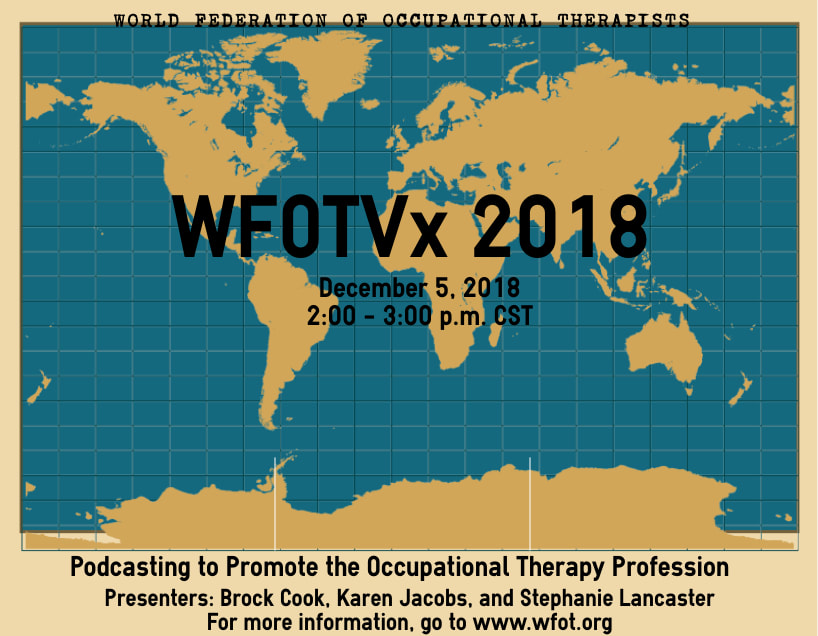


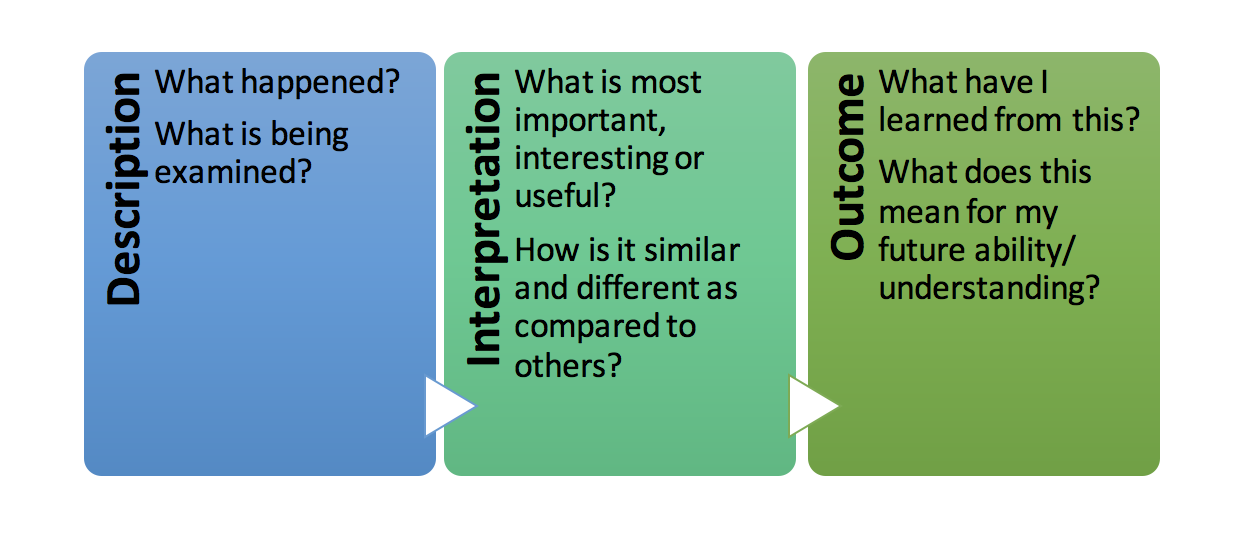


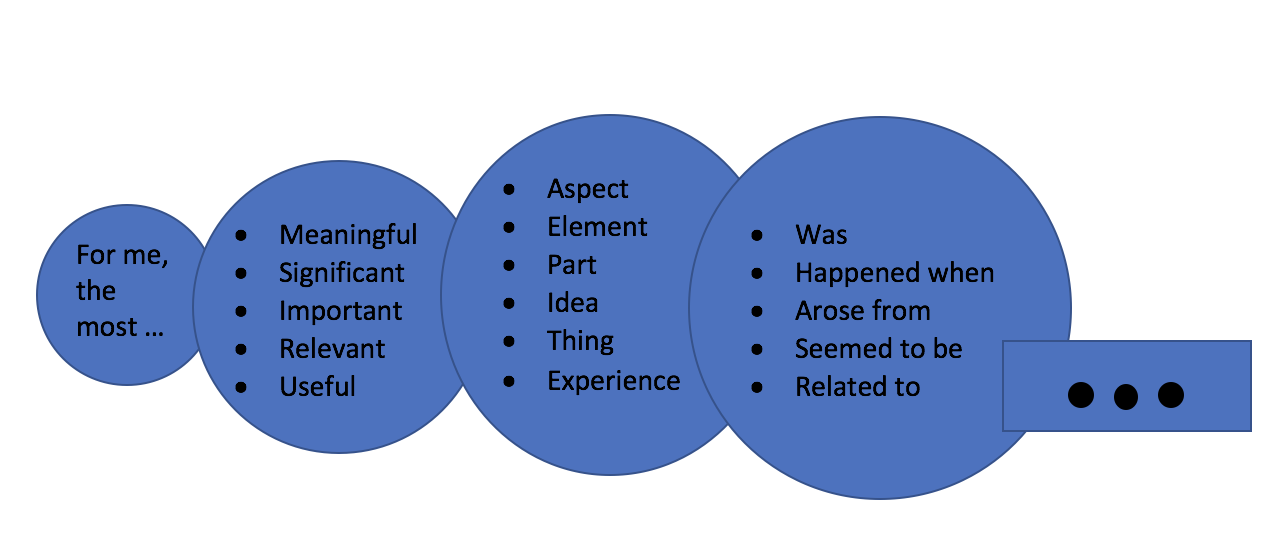
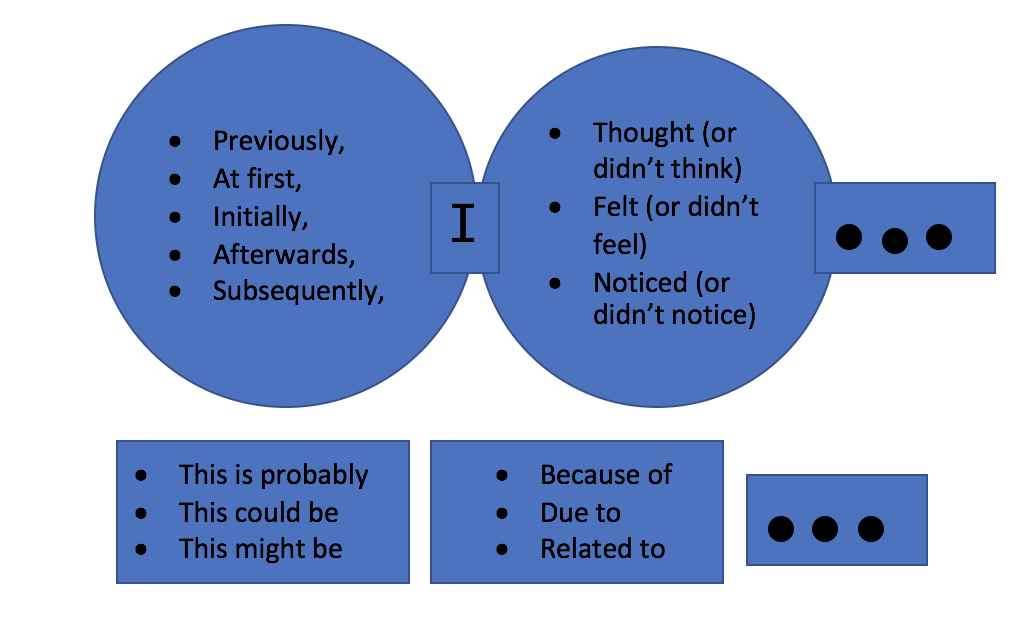
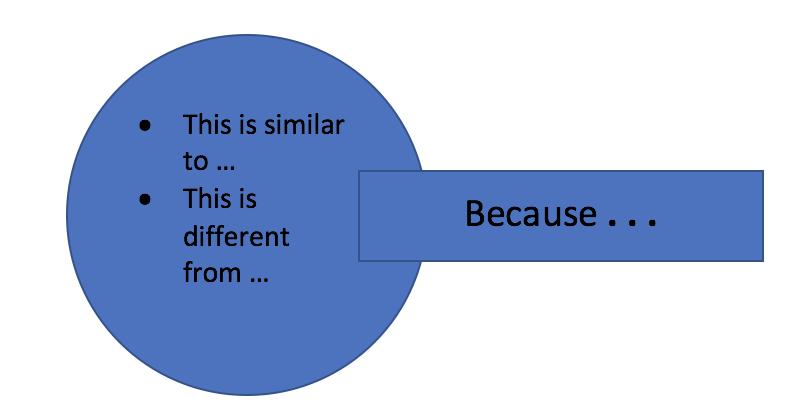

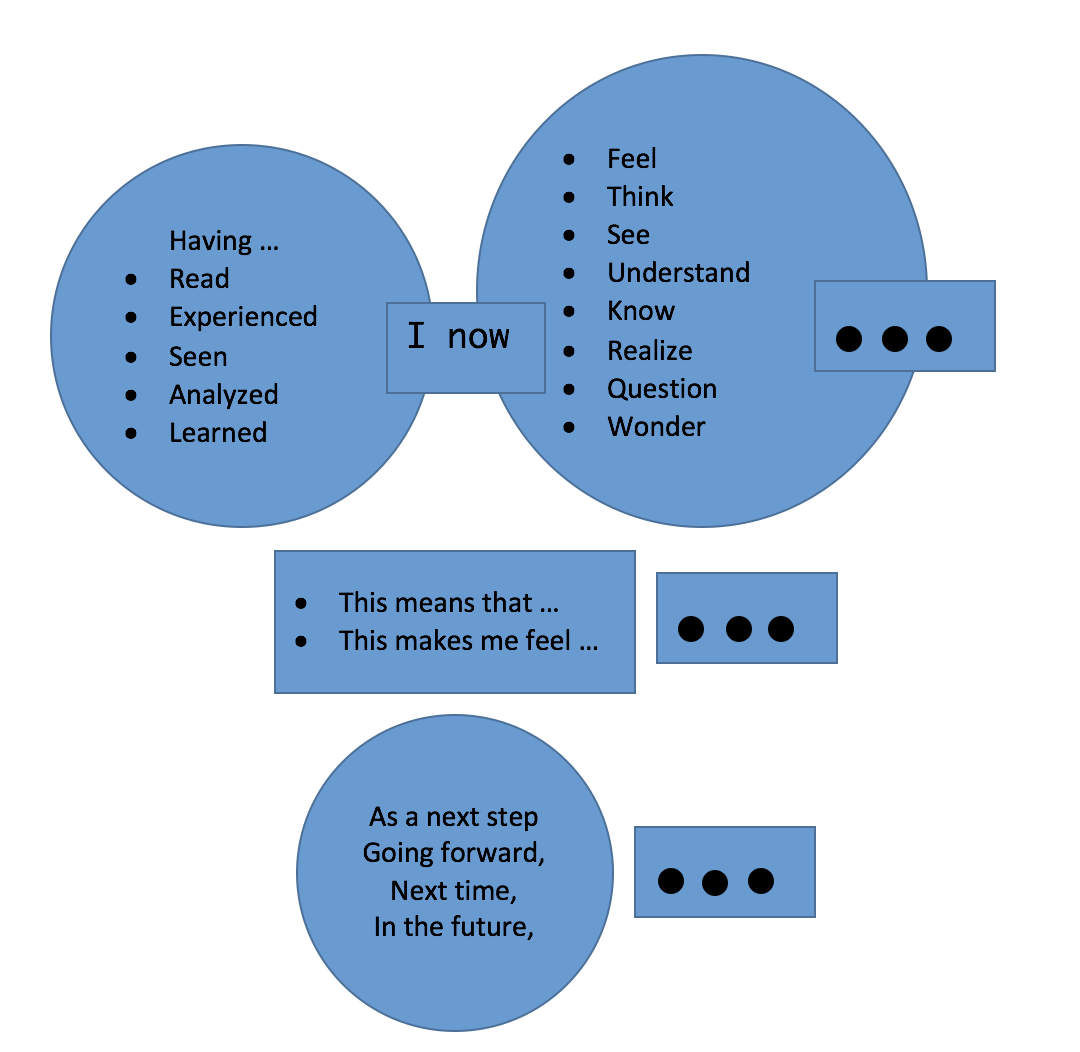
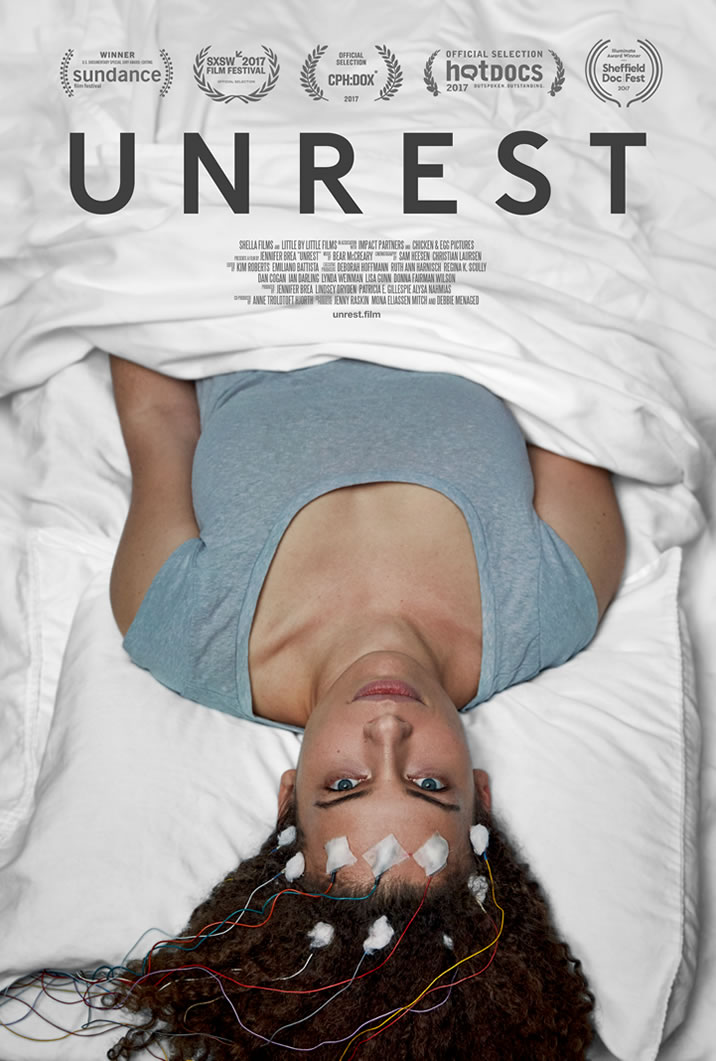
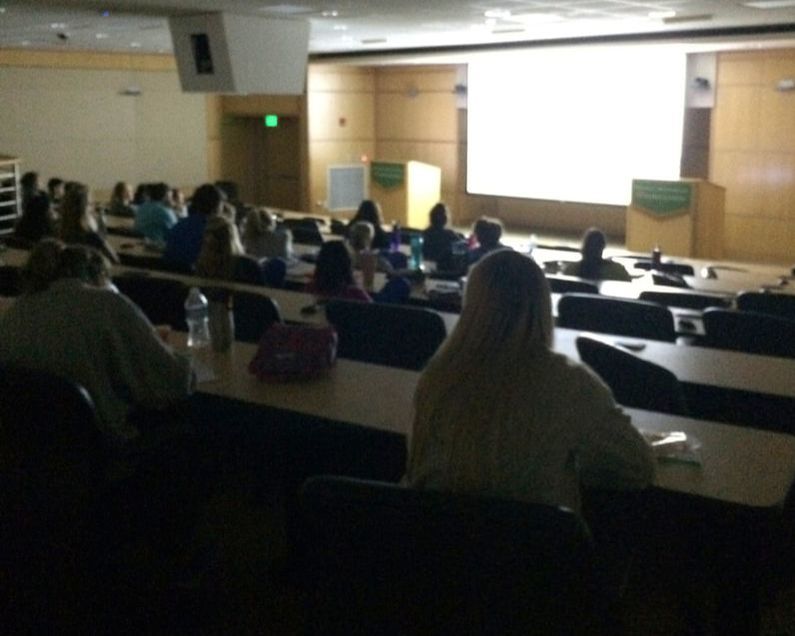


 RSS Feed
RSS Feed
